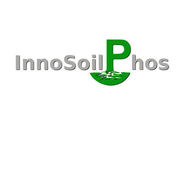Impact of crystalline and amorphous iron- and aluminum hydroxides on mechanisms of phosphate adsorption and desorption (2018.0)
Gypser S., Hirsch F., Schleicher A., Freese D.
Journal of Environmental Sciences, 70 (), 175-189
Abstract
Fourier-transform infrared (FT-IR) spectroscopic experiments were carried out during phosphate adsorption on highly crystalline gibbsite, poorly crystalline 2-line-ferrihydrite and amorphous iron–aluminum–hydroxide mixtures in the molar ratio 1:0, 10:1, 5:1, 1:1, 1:5, 1:10 and 0:1. The OH stretching vibrational bands were utilized to analyze changes in structural and surface OH groups during adsorption, because the position of characteristic PO vibrational bands can shift depending on reaction conditions, pH or adsorbed phosphate content. Adsorption and desorption kinetics were studied at pH 6 and different initial phosphate concentrations to achieve varying phosphate coverage on the mineral surfaces. For gibbsite the formation of AlHPO4 and Al2HPO4 can be assumed, while for ferrihydrite, a FeHPO4 or Fe2PO4 complex and the precipitation of FePO4 with longer equilibration time were proposed. Fe2HPO4 or a Fe2PO4 surface complex was deduced for Fe-hydroxides, an AlH2PO4 surface complex was identified for Al-hydroxide, and both displayed either hydrogen bonds to neighboring hydroxyl groups or hydrogen bonds to outer-sphere complexes. Fe:Al-hydroxide mixtures with high Al ratios showed a low phosphate desorption rate, while ferrihydrite and the Fe:Al-hydroxide mixtures with high Fe ratios had almost negligible desorption rates. It was concluded that within the weakly associated amorphous FeO(OH) materials, FePO4 precipitated, which was bound by outer-sphere hydrogen bonds. With high Al ratios, desorption increased, which indicated weaker phosphate binding of both inner-sphere and outer-sphere complexes and hence, either no or minor quantities of precipitate. Ferrihydrite showed a more rigid structure and a lower extent of precipitation compared to amorphous Fe-hydroxide.
